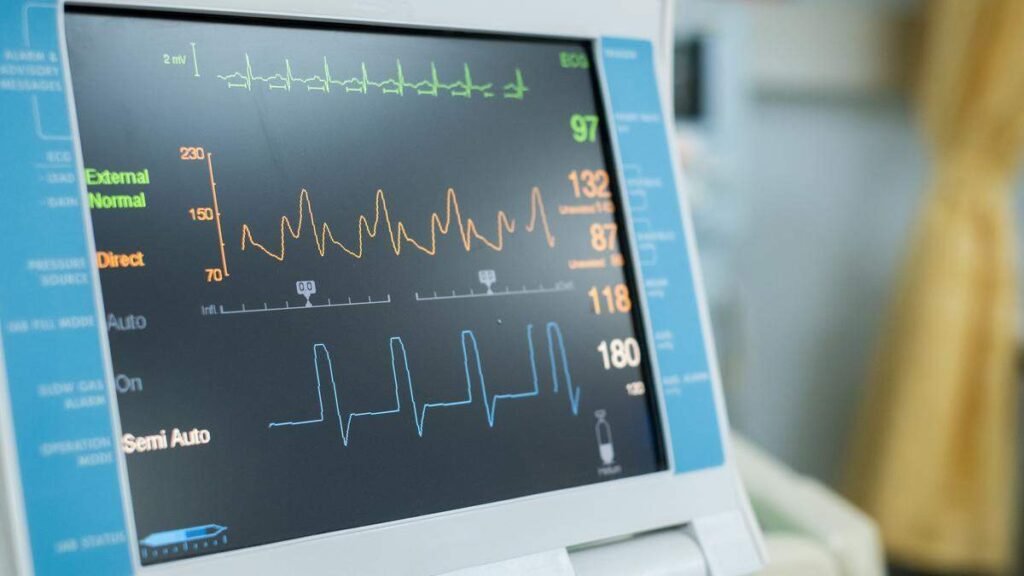Researchers in Luxembourg are using AI to help heart patients predict when they might be experiencing arrhythmia, and hope the technology could eventually make it into smartwatches.
Jorge Goncalves, head of the Systems Control Group at the Luxembourg Center for Systems Biomedicine, is working with other researchers to develop deep learning models that can predict cardiac arrhythmias before they happen.
Atrial fibrillation, characterized by an irregular heartbeat, is the most common arrhythmia worldwide, affecting approximately 59 million people in 2019, according to a study published in the Journal of the American College of Cardiology.
This usually occurs in people over 70 years old, and while it’s not usually life-threatening, it increases the chances of stroke and heart failure. During arrhythmia, the heart can’t pump enough blood, which can lead to blood clots that can travel to the brain and cause a stroke.
Prediction of arrhythmia
Goncalves’ research group works on modeling based on data from clinicians and cell biologists. They aim to combine this information to create new models and hypotheses about the issues that drive different problems, and to make predictions using computational models ranging from differential equations to deep learning.
Atrial fibrillation is typically treated by controlling a patient’s heart rate, “and also prevented with antiarrhythmic and anticoagulant medications taken daily,” Gonsalves said.
Jorge Goncalves developed technology to predict heart problems after seeing his mother suffer from heart disease. © Photo credit: University of Luxembourg
The professor’s own mother also suffers from the disease. Although she does not suffer from arrhythmia every day, she still has to take medication even when her heart rate returns to normal. “I wondered if there was something we could do to help patients not have to take medication every day,” said the professor, and thus the idea of developing a model that could predict heart attacks in advance was born.
Arrhythmias are hard for doctors to predict, and “this is where AI really excels: it’s good at finding patterns in large amounts of data,” Gonsalves says.
The researchers contacted cardiologists around the world, and through collaborations with hospitals in Argentina and China, they had access to 24-hour electrocardiogram data from patients who developed arrhythmias during that time period. The scientists examined this data from about 350 patients, “specifically to find out what was happening before the switch and whether there were any signs that the switch was coming.”
Smartwatches can currently tell you if you have an irregular heartbeat, but they can’t yet predict it.
Jorge Goncalves
Luxembourg Systems Biomedicine Center
This enabled the researchers to establish an early warning and create a model that can predict atrial fibrillation approximately 30 minutes before its onset, confirming the possibility of predicting these episodes before they actually happen.
“Currently, smartwatches can tell you if you have an arrhythmia, but they can’t yet predict it,” Goncalves said. “This proof of concept opens up new avenues of research, potentially allowing smartwatches or mobile phones to tell you if you need to take medication for arrhythmia.”
According to the professor, this could be developed in the near future.
Customizing the model
It took about two years to come up with the current model. “It’s always difficult working with real data. Sometimes something that should work in theory doesn’t work, and we have to use university resources to figure out why,” he says. “That process requires high-performance computing and is quite intensive.”
The next step involves a similar process, carried out individually over several months. “This allows us to customize the model for each patient, because each patient has a different pattern.”
Arrhythmias can lead to heart failure and stroke © Photo credit: dpa
Even if outcomes and diseases are similar, the reasons for this vary from person to person, and while current research relies on historical data, building new data on individual patients will improve the accuracy of such models.
“As a researcher, I’m working on more fundamental questions, but it’s also interesting to find a company that can commercialize this idea as a medical product or license it, making it a useful innovation that has real-life impact, going from paper to patients,” Goncalves said. The university is currently reaching out to potentially interested parties.
These are very exciting times, with both the fields of biology and AI advancing rapidly.
Jorge Goncalves
Luxembourg Systems Biomedicine Center
Gonsalves is in contact with other researchers and medical professionals to develop similar models for other types of cardiovascular disease in order to better treat life-threatening conditions such as heart attacks and ventricular tachycardia.
The applications of AI in medicine are limitless, he says. “We recognize that the human body is a very complex system and it’s very difficult to understand solely from an experimental standpoint,” he says. “The combination of experiment and computation is very powerful. At our university, if you have a hypothesis, we have biologists in-house who can test it. I rely on the knowledge of the doctors and biologists, and they rely on my expertise with mathematical models.”
“This is an exciting time with rapid advances in both the fields of biology and AI. We’ve seen a recent explosion in AI performance, and we’ve also seen incredible progress in what AI can measure,” Gonsalves said. “I’m thrilled to be a part of this research now.”

